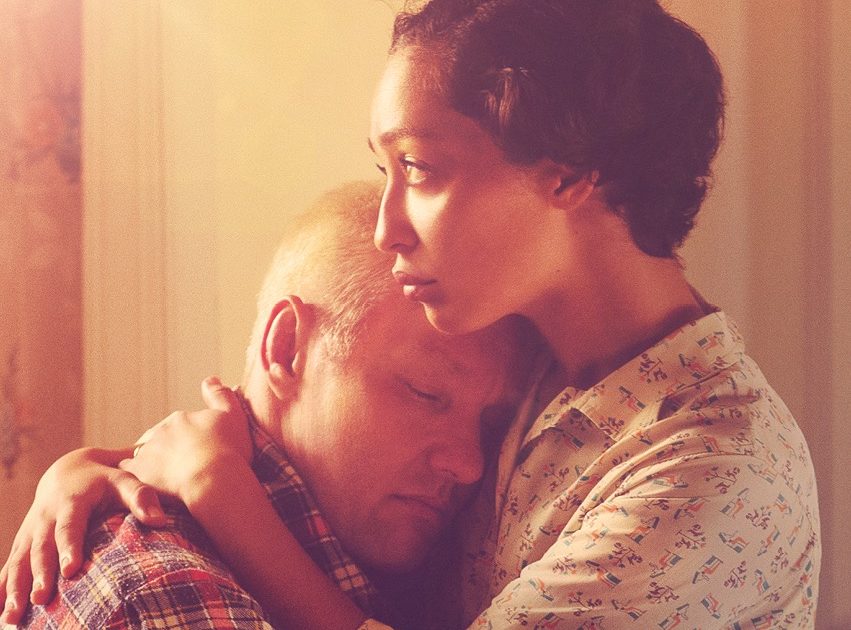By Mark Saldana
Rating: 4 (Out of 4 Stars)
On June 12, 1967, the United States Supreme Court ruled that any laws prohibiting interracial marriage would be invalid and unconstitutional. This historical decision became not only a milestone for anyone wishing to marry outside of one’s race or ethnicity, but also gave Richard and Mildred Loving the right to continue a marriage that had begun nearly ten years prior to the ruling. Writer/director Jeff Nichols (Take Shelter, Mud) has made a truly powerful and beautiful movie about the Lovings and their mostly uphill and painful battle to remain happily married. Nichols,a filmmaker known for his modest, intimate style, has made a lovely tribute to this humble, unassuming couple that focuses mostly on their struggles in day-to-day life, and less on the larger scale of their battle. The Lovings simply wanted to get married, share their lives together and raise their children according to their beliefs. During the late 1950s and much of the 1960s, their local law enforcement and government would not allow this.
Ruth Negga and Joel Edgerton star as the Lovings, a couple who grow up surrounded by their families in their rural town in Virginia and eventually fall in love and leave the state to marry. Upon returning to their town, as they pursue their life together, the local law enforcement forcibly enters their home and arrests them for violating an old anti-miscegenation law. After getting released and cutting a deal with the court, the couple pursues a “secret” relationship, but are once again arrested. Forced to live away from their home and families, the Lovings unhappily continue with their lives raising their children, until Mildred decides to seek legal counsel for the freedom to return home.
Nichols’ no-nonsense, straight-forward style makes a perfect match for a portrait about a simple, unassuming Southern couple who simply wanted to pursue their own happiness and the happiness of their children and families. Not people to consciously make waves or cause trouble, Mildred Loving reluctantly sought legal help with the sole intention of being able to raise her family wherever she desired–in this case, in the Lovings’ rural hometown with their families nearby. Nichols offers another wonderfully written, character-driven drama that shows not only the legal turmoil faced by the Lovings, but the inner fears they had for standing up for themselves. There are several times in the story that Lovings feel conflicted and fearful for what they are pursuing and Nichols has written a script and directed a movie that beautifully conveys these relatable feelings.
Both Joel Edgerton and Ruth Negga offer perfectly subdued and convincing performances as this humble, but pained couple. The performances are so beautifully nuanced and executed that I found myself feeling their fears and emotions and understood exactly who these people were. It definitely represents an atypical side of people desiring equality and freedom. The Lovings were not political activists, they were rural folk who enjoyed the simple things in life. In addition to the superb work by Edgerton and Negga, the movie also has solid turns by Terri Abney, Marton Csokas, and Nick Kroll.
So, with Loving, Jeff Nichols has made an outstanding and beautiful portrait of a couple who’s only pursuit was love. It seems like incredible serendipity that this couple has the name Loving, because love is what they represent and their desire for freedom comes from that love that they had for one another. Their pursuit of this love led to a landmark Supreme Court decision that would resonate in 2015 with the Court’s decision to allow same-sex marriages. This very unassuming Southern couple had no idea the impact their simple pursuit of love would have for many generations of Americans.
